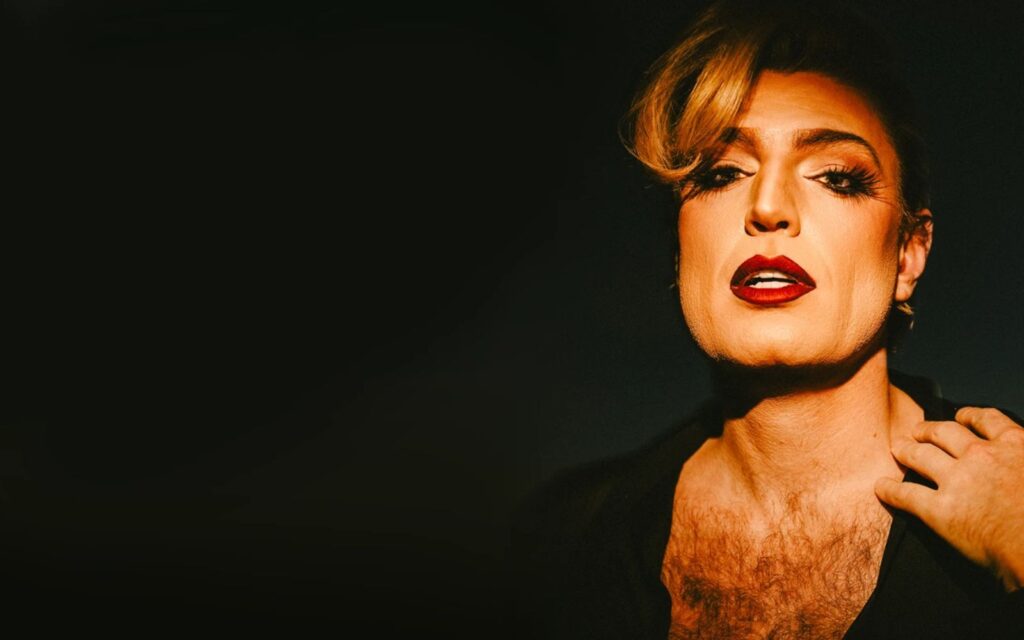Constellations takes the concept of freewill, good, bad and indifferent as well as life and death to a scientific and emotionally charged level through complex characters and an ever more complex concept – that of the existence of the multiverse. After enjoying a stellar run in the UK with enough dazzling reviews to wallpaper Payne’s house, this truly unique story is coming to Melbourne via the Melbourne Theatre Company.
When speaking with the charming Alison Bell, the actor who is tackling the character of Marianne, one-half of the two-handed cast, she admits that rehearsal has been exhilarating and it’s clear the reputation that precedes the show is somehow managing to stay out of her mind. “It’s a show that we all had a great deal of trepidation about because its structure is so unique but it’s coming together well and it feels like it’s not impossible,” Bell says, punctuating her sentence with a laugh, something that she does often. “In some respects, our egos are slightly protected because we’re so far away, geographically, and very few people will see both productions and be able to make direct comparisons. The positive that you take away from doing a piece that’s been wildly successful is that you know it’s a great play. We do kind of joke about the fear of not being as great as they are but I don’t think it’s very real. We can only do it in the way that makes sense to us; none of us in the room have seen it and because of that, we’re not guided in any way as to our approach.”
Bell had been a fan of director Leticia Cáceres’ work in the past while her and her co-star, Leon Ford, are no strangers to each other having worked together last year in a play at Belvoir, cast as husband and wife. In Constellations, however, things are not as straightforward as their previous onstage relationship. The characters of Marianne and Roland meet, and then meet repeatedly, each time with a different outcome and each time highlighting a different aspect of their complex personalities. Their meeting is unlikely, their respective backgrounds seem to suggest that a pairing is even more unlikely (Marianne is a theoretical physicist while Roland knows a lot about bees) and Payne explores that in that one meeting, there are infinite possibilities.
“I knew nothing about quantum mechanics and that was fascinating; it’s one of the best parts of my job really,” she says. “I get to step into, and learn about, worlds that I otherwise wouldn’t encounter. The physics part piqued my interest but the biggest factor is that Nick Payne has tapped into something that’s so very human – the idea of speculating the ‘what ifs’ and how delicate relationships are – so I think it has a relatable quality while being a very unique piece of theatre. It holds very particular challenges for an actor given that you have to surrender what you’ve just done as the scene changes and there’s no chance to see anything through so that removes any chance of emotional over indulgence.”
The biggest challenges for Bell has been the unique structure of the show as well as maintaining some sense of consistency within her ever-changing character. “The tension between maintaining some sort of essential quality that makes up these characters while showing how disparate people can be is a challenge,” she explains. “People can be so extreme at times; in the wrong circumstances we can be dreadful and in the right ones we can be amazing. This play asks what happens when a couple are at their best, worst, and in between.”
In life, people take various forms with circumstance often dictating the essence of people at any given moment. While the nature versus nurture debate will continue to persist in biology and psychology, the fact remains that people display varied characteristics when presented with a wide array of challenges. Payne takes this idea, with the tool of the multiverse, and compresses it into a few, varied scenarios. “There are so many permutations of this couple, you see them at their best and at their worst and you get little hints that are a portal into the next part of the relationship,” she explains. “In most examples, this relationship is not going to work but in one it is. The play is also deeply philosophical; it’s dealing with death and notions of what happens when you die, asking bigger questions like how we cope knowing that our lives will end. It almost frames theoretical physics as an alternative to any kind of God-based belief system.”
BY KRISSI WEISS







